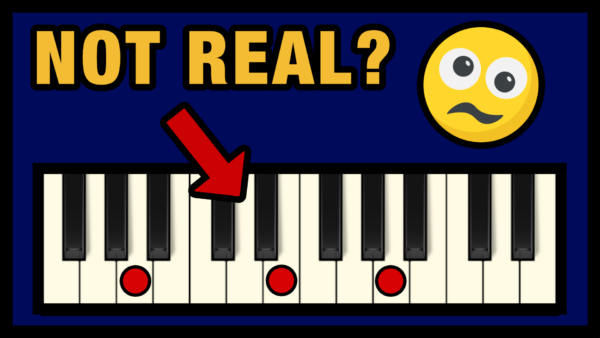 Have you ever heard that Power Chords are not real chords? Wait, that sounds stupid, doesn’t it?
Have you ever heard that Power Chords are not real chords? Wait, that sounds stupid, doesn’t it?
Why would they be called Power Chords if they are not chords? Well, there is a reason for this, so let’s find out!
1. What defines a Chord?
A chord in music is a bundle of 3 or more different notes played together in harmony. You can play these chords together as a block, or break the notes up into an arpeggio or rhythmic riff using the different notes in the chord.
The fundamental way to build chords in music is by stacking intervals of 3rds, which is most cases will be either a minor 3rd or a major 3rd. But you can alter the thirds, remove one of the 3rds, and of course add any of your notes in octaves. As long as you have 3 distinct unique notes, which means not counting octaves, you will have some kind of chord.
2. What defines a Harmony
A harmony in music is an interval played together, like you do with chord notes, but using only 2 different notes at the same time. So when you play a melody you play one note at a time, meaning an interval. But if you harmonize your melody with a second voice, you are playing a 2 part harmony.
3. Why Power Chords are Not Chords
So this takes us back to the power chords in music. When you play a power chord on let’s say an electric guitar, which is probably the most common instrument to use for power chords, you play the root note of the chord, and add the perfect 5th harmony. And if you add another string so that you play 3 strings, that will be an octave of the root note, which means you are not playing 3 unique notes. You are playing for example G + E + Another G.
So basically, power chords are not chords, but rather harmonies played in perfect 5ths with a potential octave added for adding even more to the root note. The reason that they are called power chords, in my opinion, is that it is much easier to say compared to let’s play perfect 5th harmonies with an added octave to the root. And also because it sounds way cooler to say ‘Power Chords’.
And finally because the word power really has a meaning here, because in music, the most powerful and clear harmony is the perfect 5th. This is why it sounds muddy as soon as you play a ‘real chord’ an electric guitar with high distortion. So the root + perfect 5th and the octave, is the only way to play harmonies with high distortion and still get a clear overall tone, with extra power.
This also goes for playing any harmonies in the low range of music. The bass and all instrument playing in the lower octaves, will practically always focus on the root, the perfect 5th, or any octave doubling of these.

